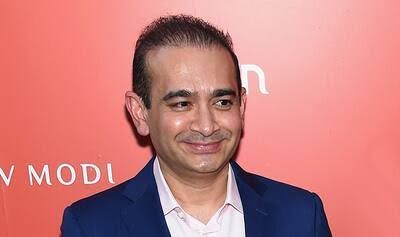By Tiya Khurana , a law student at VSLLS,VIPS-TC
Abstract
This article delves into the intricate details of the Nirav Modi scandal, a significant financial fraud that unfolded in 2018, involving the high-profile jeweller’s alleged orchestration of deceptive transactions to defraud Punjab National Bank (PNB). The narrative encompasses the background of the scam, detailing the fraudulent activities, investigations, legal proceedings, regulatory responses, and the global impact on financial systems. Through a critical analysis of the case, the article sheds light on the vulnerabilities within banking practices, the imperative for robust regulatory frameworks, and the lessons learned to safeguard against complex financial fraud.
Keywords
Nirav Modi, financial fraud, Punjab National Bank, regulatory responses, legal proceedings, international cooperation, banking practices, due diligence, global impact, financial systems.
Introduction
The Punjab National Bank (PNB) scam, masterminded by jeweller and designer Nirav Modi, stands as a stark example of the intricate web of deceit within the financial sector. This article delves into the layers of deception surrounding the allegations, investigations, legal proceedings, regulatory responses, banking practices, and global impact of this scandal.
Background:
Nirav Modi, once a prominent figure in the jewellery industry, built an extensive business empire spanning multiple countries. However, beneath the glittering façade lay a complex scheme of financial malpractice. Central to this deception was the involvement of Punjab National Bank (PNB), a venerable institution in India’s financial landscape. Through fraudulent means, Modi exploited loopholes within PNB’s internal mechanisms to orchestrate a scheme of staggering proportions.
The Mechanics of the Scam:
The Punjab National Bank scam relates to fraudulent letters of undertaking (LoUs) worth Rs 10,000 crore issued by the bank. The key accused in the case were jeweller and designer Nirav Modi, his maternal uncle Mehul Choksi, and other relatives along with some PNB employees. Nirav Modi and his relatives escaped India in early 2018, days before the news of the scam became public, dubbing it as the biggest fraud in India’s banking history.
Bankers utilized fake LoUs at PNB’s Brady House branch in Fort, Mumbai. These LoUs were opened in favor of branches of Indian banks for the import of pearls, violating Reserve Bank of India guidelines which stipulated a total time period of 90 days from the date of shipment. Overseas branches of Indian banks ignored this guideline, failing to share any document/information with PNB, which were made available to them by the firms at the time of availing credit.
Nirav Modi acquired his first fraudulent guarantee from PNB on March 10, 2011, and managed to obtain 1,212 more such guarantees over the next 74 months. The Enforcement Directorate (ED) recovered bank token devices of foreign dummy companies used by the fugitive diamond trader to transfer the fraudulent funds. Nehal Modi, brother of Nirav Modi, had destroyed the devices and secured a server located in the United Arab Emirates (UAE) soon after the scam broke out. These dummy firms had been receiving the fraudulent PNB LoUs and were based out in British Virgin Island and other tax havens. The enforcement agency has so far seized movable and immovable properties to the tune of Rs 2362 crore in the PNB fraud case.
Timeline of Events:
On January 29, 2018, PNB lodged an FIR with CBI stating that fraudulent LoUs worth Rs 2.8 billion were first issued on January 16. As of May 18, 2018, the scam had ballooned to over Rs 14,000 crore.
Legal Proceedings:
The ongoing legal proceedings against Nirav Modi epitomize the difficult quest for justice in the face of intricate financial malfeasance. Despite concerted efforts, the legal system encounters multifaceted challenges in its pursuit of accountability. Complexities inherent in transnational litigation, coupled with the formidable task of securing convictions, underscore the formidable obstacles impeding the swift dispensation of justice. Moreover, the implications of this case transcend domestic borders, highlighting the exigency of extradition proceedings and fostering international legal cooperation to address the intricacies of cross-border financial crimes.
Regulatory Responses:
An incisive examination of regulatory oversight reveals systemic lapses that facilitated the perpetration of the Nirav Modi scam. In response, policymakers have embarked on a comprehensive reform agenda aimed at fortifying financial regulations and augmenting oversight mechanisms. Initiatives include the implementation of stringent compliance protocols, enhanced due diligence requirements, and bolstered reporting mechanisms. However, the efficacy of these measures in preempting future fraud remains contingent upon their rigorous enforcement and continual evaluation. Ongoing scrutiny and refinement of regulatory frameworks are imperative to ensure their resilience in the face of evolving threats.
Banking Practices and Due Diligence:
A meticulous analysis of lapses within Punjab National Bank’s internal controls unveils critical lessons for the broader banking sector. The revelation of internal deficiencies underscores the indispensable role of robust due diligence practices in mitigating operational risks and safeguarding financial integrity. Key takeaways include the imperative of enhancing internal monitoring mechanisms, cultivating a culture of compliance, and fostering transparency across all levels of operation. Recommendations for enhancing banking practices encompass the implementation of stringent vetting processes, the adoption of advanced technological solutions for risk assessment, and the institutionalization of comprehensive training programs to imbue staff with a heightened awareness of fraud prevention strategies.
Global Impact:
The reverberations of the Nirav Modi scandal extend far beyond the confines of India’s borders, exerting a profound impact on the nation’s reputation and the broader global financial landscape. However, amidst the turmoil, the episode has catalyzed a paradigm shift in international cooperation and collaboration in combating cross-border financial crimes. By fostering alliances, sharing best practices, and streamlining extradition processes, nations can collectively confront the challenges posed by transnational fraud and fortify the resilience of the global financial ecosystem against illicit activities.
Conclusion:
The Punjab National Bank scam, spearheaded by Nirav Modi, underscores the vulnerabilities within the financial sector and the imperative for robust regulatory oversight. As stakeholders strive to fortify mechanisms against fraudulent activities, the lessons gleaned from this debacle serve as a catalyst for systemic reform and international cooperation in combating financial crimes on a global scale.
References
1. https://www.business-standard.com/amp/about/what-is-pnb-scam



